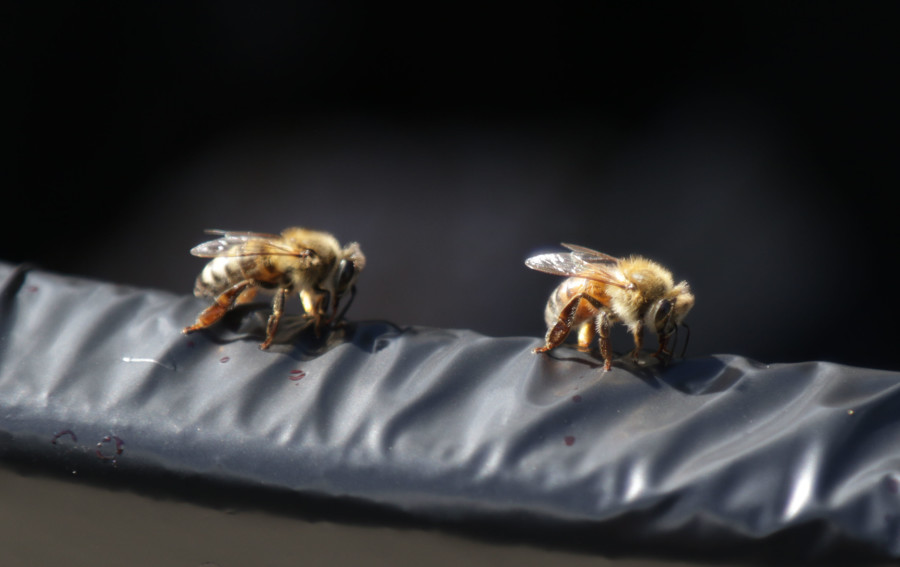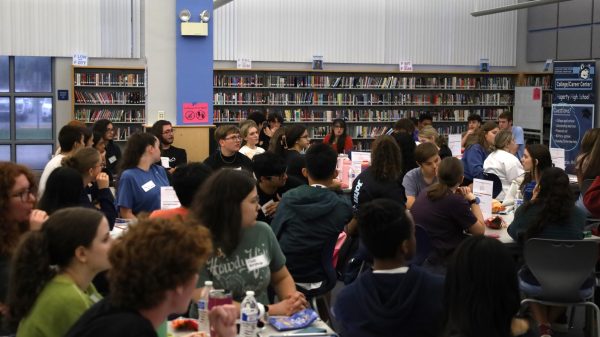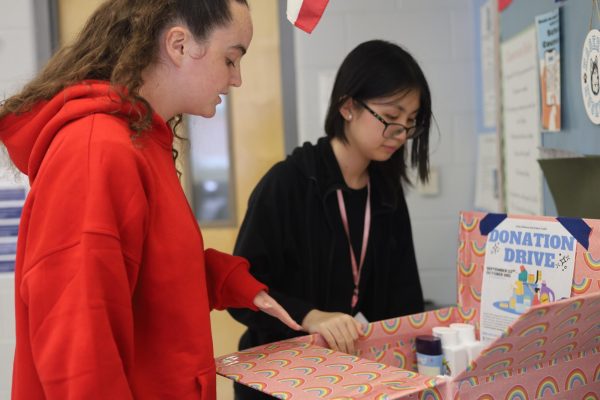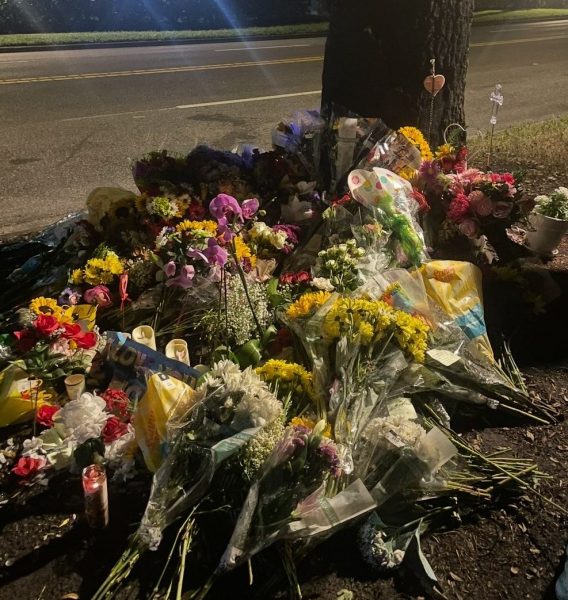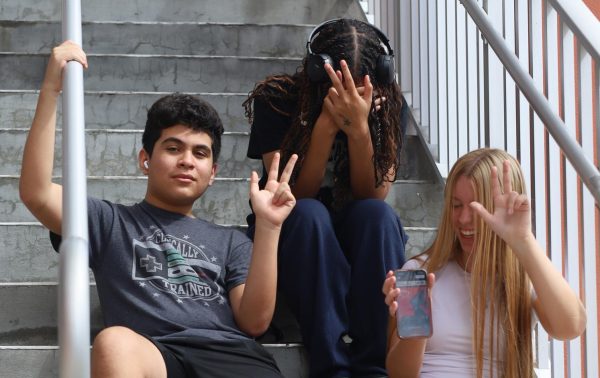Administration responds to on-campus bee inhabitation
photo by Jake Arthur
This year, as with last September, it is not an uncommon sight to walk past a trash can on campus and see 10-15 bees feasting on the garbage inside.
These bees happen to be honeybees, known for their pollination of flowers and production and storage of honey. They are attracted to the sugary drinks consumed by students, which means they usually only swarm trash cans during lunch hours.
Dean Brett Hamilton, who is in charge of facilities, has taken considerable measures to secure campus safety. As suggested by county administration, Hamilton had the garbage cans pressure washed, removed them from student eating areas and ensured the daily disposal of garbage can liners. He also described the situation to Seminole County Animal Services, who reportedly offered little other help than the precautions above.
“I went online and Googled home remedies, and I put cinnamon and cayenne pepper in all the trash cans because that’s supposed to keep them away, but that didn’t work,” Hamilton said. “I did everything I possibly could to keep our school and our students safe.”
Bees are not yet a protected species, but they are dwindling, which is why both Hamilton and Dr. Mary Williams favored the possibility of calling a professional beekeeper as opposed to an exterminator.
Most bee complaints, however, have come from students with bee allergies and their parents.
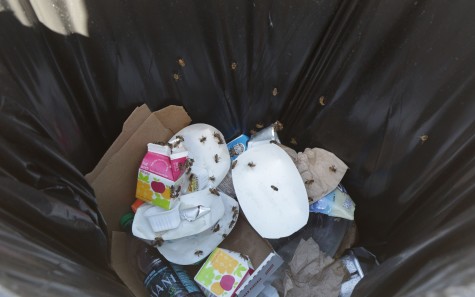
“If you’re allergic to bees and you don’t want to be in the vicinity of them, definitely you need to be eating lunch inside,” Williams said. “That being said, I personally haven’t heard of one person being stung.”
As for students’ role in de-escalating the situation, Williams advises students to make sure their trash is thrown away at the end of the lunch period.
“The bees are not here to attack you, they’re here for what’s in the garbage,” Hamilton said. “If you’re attacking them, they will want to retaliate and fend for themselves.”
Your donation will support the student journalists of Hagerty High School. We are an ad-free publication, and your contribution helps us publish six issues of the BluePrint and cover our annual website hosting costs. Thank you so much!

